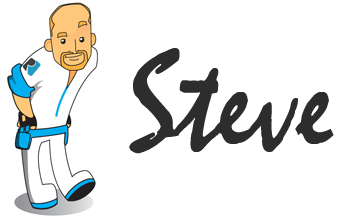-
-
products
-
resources
-
support
-
company
-
3 Simple Ways to Free Up Hard Drive Space
By Steve Horton May 09, 2012hard drive, solid state drive, windows disk cleanupNo CommentsLearn how to Free up Hard Drive Space Quickly
Illustration: Gordon McAlpin So you’re running out of storage space. Maybe it’s a smaller solid state drive, or maybe it’s a mammoth hard drive and you don’t feel like deleting any of your movies.
Having hard drive space is not only good for being able to save files, it’s useful for Windows to use as virtual memory, meaning that Windows uses some of that space as a temporary memory placeholder in case you max out on memory.
Here’s 3 simple ways to free up hard drive space and recover gigabytes of storage space.
Windows Disk Cleanup
This utility, included with all versions of Windows, removes temporary files, empties the Recycle Bin, deletes unnecessary backup files (generated during a Service Pack update, for example), and performs various other optional space-saving steps. It’s a fast way to get rid of files that you just don’t need anymore, if you ever did.
To access Windows Disk Cleanup:
- Click Start
- Click All Programs
- Click Accessories
- Click System Tools
- Click Disk Cleanup
You’ll be asked to choose a drive … usually, you’ll want the current drive, C:
- Click OK
The system will calculate how much space you’ll save using the default selections. You can increase or decrease this space depending on which options you select. Also, there may be things you aren’t comfortable with deleting, such as offline webpages.
When you’ve made your decision, click OK and the system will remove those files and give you your precious space back.
Uninstall Unneeded Programs
The best way to recover monstrous amounts of hard drive space is to uninstall applications that you no longer use. Games, especially, can take up gigabytes of space at a time, space that you could be using for other things.
Here’s an interactive video that covers how to uninstall unneeded programs, regardless of your version of Windows.
Move to the Cloud
We’ve warned against relying too much on cloud storage. However, if you’ve got a couple gigabytes of non-essential files that you still want to keep — such as photos — consider moving them off to Dropbox or a similar service. You get 2 GB of cloud storage free, and that 2 GB can be put to much better use on your hard drive.
Whatever way you choose, enjoy the extra space!
Was this post helpful?YesNoFree Driver Updates
Update your drivers in less than 2 minutes to enjoy better PC performance - Free.
Free Driver Updates
Update your drivers in less than 2 minutes to enjoy better
PC performance - Free.
Didn't find your answer?Ask a question to our community of experts from around the world and receive an answer in no time at all.most relevant recent articles Pin It on Pinterest

